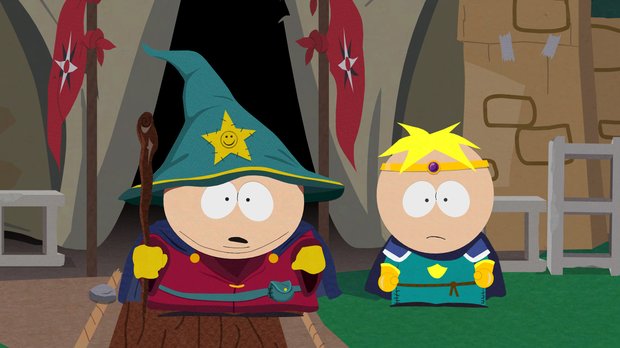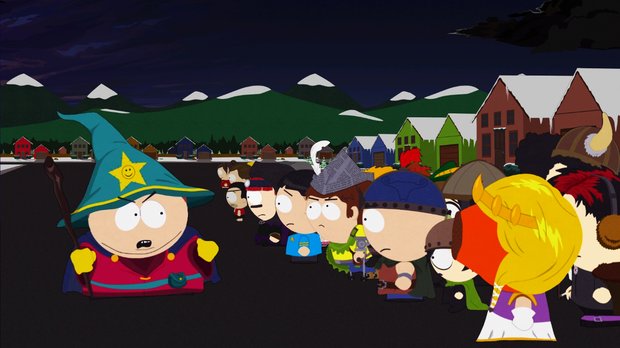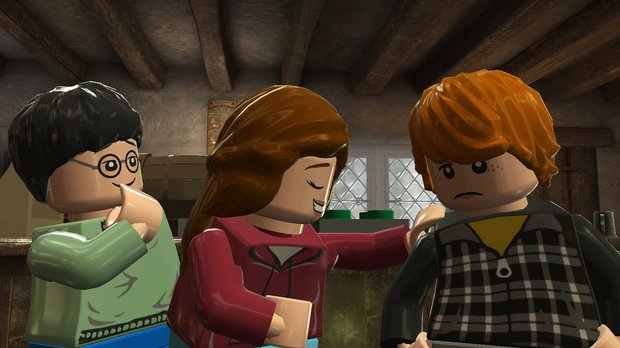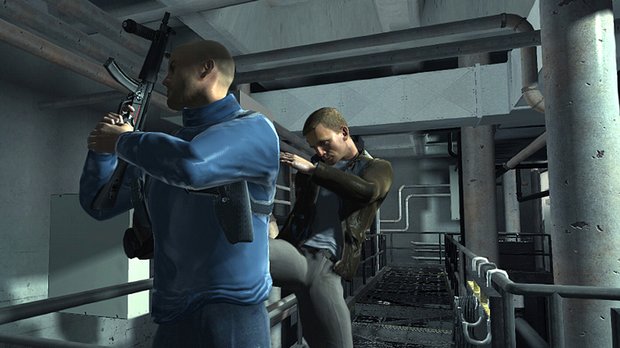What makes a good licensed game?
South Park: The Stick of Truth is one of the most entertaining, most accomplished licensed games ever. After more than a decade of trying, it seems video games finally managed to nail the look, feel, and humour of a TV show ripe with potential. Well done, Obsidian. Nice one, Ubisoft. Before you guys showed up, it was starting to get a little embarrassing. So why did something like Stick of Truth succeed where so many others have failed? The answers aren’t as obvious as you might think.

It’s not enough to simply have character likenesses and voices. Games need to give their own unique take on a specific license for the concept to work; not just slavishly follow the scenes of the film or episodes of the TV show. While short-sighted movie directors and game marketing people insist that games and films are interchangeable, this simply isn’t the case: they’re two very different forms of entertainment that just happen to play through a TV. What’s good for a film isn’t necessarily great for a game.
Authenticity is often held up as the key to a great licensed game, but the interpretation of that word is often key to success. South Park, for example, is ready-made for video games even though it doesn’t have much in the way of action or epic adventure. It features a distinct cast, a simple--yet unique--visual style and a plot that never worries about abandoning reality or morality. This really cuts down on awkward conversations between the people who make the show and the game. “Yes, Cartman can spew a cloud of fire from his ass as a special attack. Sure, you can set a level of the game inside the town’s abortion clinic--that’s pretty much the stuff that happens in the show.” In other words, slavishly adhering to the show--in this case--was the correct thing to do.

Previous South Park games have been guilty of trying to go too tangental with the TV show’s content. A kart racer? A quiz mini-game? Really? However, this angled approach did work for games like Chronicles of Riddick (a first-person stealth game) and Scott Pilgrim vs The World (a retro beat-‘em-up). Even though both Riddick and Pilgrim felt very removed from the films they were based on, both worked well as games and still managed to feel like they belonged in the same universe as their source material. Trying to play it straight like South Park simply wouldn't have worked for Riddick or Scott Pilgrim, even though they are--on the surface--quite gamey in concept.
When games are offered the freedom to interpret a license in the way they choose, the results are a mixed bag. Look at the success of the Lego series. Each one captures the spirit of the franchise it’s based on, yet the gameplay remains enjoyable and refreshingly liberated. Yeah, I know it’s technically impossible for Tom Riddle to fight Professor Quirrell at the end of Lego Harry Potter Year 1, but damn it, I want to make that happen. In spite of this extreme anachronism (the kind that would start foul-mouthed conflicts in fan forums), the game still feels incredibly authentic.

Where licensed video games often fall down is when they stick too rigidly to the source material at the expense of their ‘gamey’ side. In direct contrast to Lego Harry Potter, EA’s own tie-in to The Deathly Hallows is a dire wand-shooter that recreates some key scenes from the final movie. Sure, everything looks like Harry Potter (and the likenesses are spot-on), but the action doesn’t marry up with the film. Ironically, it feels less like part of the Potter universe than the Lego game.
Often a bad licensed game is a result of the developers either not being creative enough, or being too restricted by the license itself. Sure, something like James Bond can be made into a reasonable shooter: that’s exactly what we got with Quantum Of Solace, and--to an extent--Blood Stone. Yes, there is GoldenEye, but that’s one game out of many, many attempts to harness one of the greatest action movie franchises of all time. It can’t be that difficult, can it? James Bond is practically a video game character in his own right.
Sign up to the GamesRadar+ Newsletter
Weekly digests, tales from the communities you love, and more

Surely better results would come from a Batman: Arkham Asylum-style action game, a Metal Gear Solid-style stealth title, or even a full-blown modern RPG like Watch Dogs. Lack of flexibility with a license is the death-knell for any video game tie-in. Yes, it’s important to maintain ‘brand consistency’, but surely a substandard game--no matter how faithful to the source material--is going to cause more long term franchise damage… Looking at you, Rambo.
So what does make a good licensed game? I guess it’s the combination of a creative developer, a flexible license, and a willingness to treat the game as a game--not just an extension of the film. After all, video games, TV, and cinema are very different beasts: they’re not always going to be good together. But when they do get it right--like South Park: Stick of Truth--the results are oh-so wonderful.



